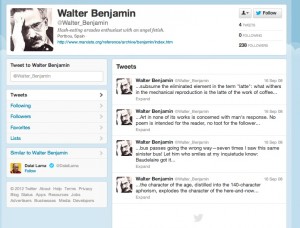Mar 12, 2014 Comments Off on A Veteran’s Day Thought
A Veteran’s Day Thought
We honor the men, and more recently women, who have given their lives in our nation’s wars. In some cases, we can even say, “without hesitation.”
We do not only honor the fallen. We honor all those who have risked their lives in service to their country. Sometimes they have done so valiantly against well-armed foes. Sometimes they have done so less valiantly against ill-equipped and poorly trained young men impressed into unwanted military duty. And, indeed, sometimes they have done so in the perpetration of acts that resulted in the deaths of innocents, the destruction of their property, the maiming of their bodies, the scarring of their minds.
Nevertheless, when someone has served, that service lends them an indisputable aura: “This person is special. They have done something special. They have done something selfless. They have sacrificed.”
Such feelings, such values, seem ancient, if not timeless. The violence in which they have been willing to indulge, the violence to which they have been willing to expose themselves, open themselves, bestows upon them a privilege. This privilege is, on the one hand, bestowed as an expression of gratitude. It says, “Your willingness to risk your life in defense of my life, our way of life, our country, is something to be admired, applauded, and, yes, rewarded.”
But the privilege enjoyed by service men and women also reflects a fear. Its bestowal also says, “Your willingness to enact deliberate violence against others (soldiers, partisans, their supporters, their families, etc.), frightens and intimidates me.”
Whenever a veteran or an active-duty service man (or woman) asserts their privileged status as a sign of authority or to lend moral weight to their particular viewpoint (which may or may not be shared by others in the service), an unspoken threat echoes along with their words. It says, “I’m a trained killer. I have shown myself willing to kill and indifferent to death. Bear this in mind.”
Which is another way for me to say that, although I opposed the draft and compulsory military service in my youth, the creation of an essentially private army, rather than a public one, means that the privilege of which I speak belongs to an ever smaller subset of society.
Better it would be, in my humble opinion, if such privilege were distributed equally throughout society reflecting a shared burden adopted willing by all citizens. In such a case, actual acts of valor would truly distinguish individuals, rather than the fact of having chosen, for whatever reason, to serve.
